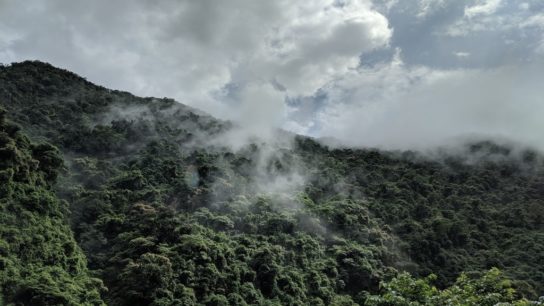On October 23, around 330kgs of manta ray gill plates were seized at Hong Kong International Airport in one of the largest ever documented interceptions, with an estimated market value of HKD$900 000 (USD $116 000). The container, labelled as ‘dried fish gills’, came from Sri Lanka and was confiscated on arrival by customs agents. Even though manta rays have been granted international protection due to their vulnerable status, the shipment may be released again, exposing the unsustainable nature of Sri Lanka’s fisheries.
—
Manta rays have specialised gill plates that filter their tiny zooplankton prey from the water. Historically, they have evaded commercial fishing, but in recent years a new market has opened, and they are now heavily sought after for their gill plates for use in Asian medicine. As a result, overfishing has devastated populations around the world.
Due to their increasingly vulnerable status, manta rays were granted legally-binding international protection in the trade of products sourced from their body parts in 2013, under Appendix II of the CITES (Convention on International Trade in Endangered Species of Wild Fauna and Flora). This legislation means that countries must prove that any international trade in manta gill plates is sustainable and non-detrimental to the survival of the species.
Manta rays are particularly vulnerable to overexploitation because they reproduce infrequently, have just a single pup per pregnancy, and their overall population sizes are relatively small. Therefore, according to Dry Guy Stevens, Co-founder and CEO of Manta Trust, “it is essentially an impossibility for any country to prove that commercial trade in manta body parts is sustainable.”
You might also like: Larger Part of Amazon at Risk of Crossing Tipping Point Than Previously Thought- Study
Sources indicate that a CITES permit was issued in Sri Lanka for the manta gill plates, but it was lost in transit. If a new permit is sent to Hong Kong, the shipment will be released.
Sri Lanka has been a party to the Convention on the Conservation of Migratory Species of Wild Animals (CMS) since 1990, which listed manta rays under Appendices I and II due to their risk of extinction. As a member country, Sri Lanka should endeavour to strictly protect listed species by prohibiting the taking of them. Yet, it has established no legislative framework to implement the CMS convention and protect manta rays. As a result, the fishing of manta rays is not technically in breach of any laws in the country. In fact, Sri Lanka supports one of the world’s largest manta ray fisheries, largely driven by the export demand for their gill plates. At present, Sri Lanka’s rate of manta ray fishing is likely unsustainable. Blue Resources Trust estimates that around 600 to 1 000 manta rays are caught every year in Sri Lanka alone.
Daniel Fernando, Co-Founder of Blue Resources Trust, says, “This manta ray gill plate seizure by Hong Kong customs is a clear indicator that trade in wildlife can be managed and enforced through conventions such as CITES. However, it also highlights the long road ahead for many countries, including Sri Lanka, in ensuring that protected or regulated species do not leave the country without the appropriate permits, and more importantly, are not exploited if they are protected under national laws or other international conventions.”
Working with customs agencies to help identify manta and devil rays and their products will help enforce CITES international trade regulations of these species. However, even with greater capacity to monitor and intercept illegal international trade, and the clear desire to do so as demonstrated by Hong Kong, nations like Sri Lanka must take responsibility to protect their own national biodiversity before it is too late.
The impacts of this fishery will be far-reaching as many of the manta rays caught by the Sri Lankan fleet are caught in international waters. If Sri Lanka continues to fail in safeguarding its own marine ecosystems, it will not only have devastating consequences for many species including manta rays, but Sri Lanka will rob its own people of sustainable livelihoods.
Featured image by: Guy Stevens

















